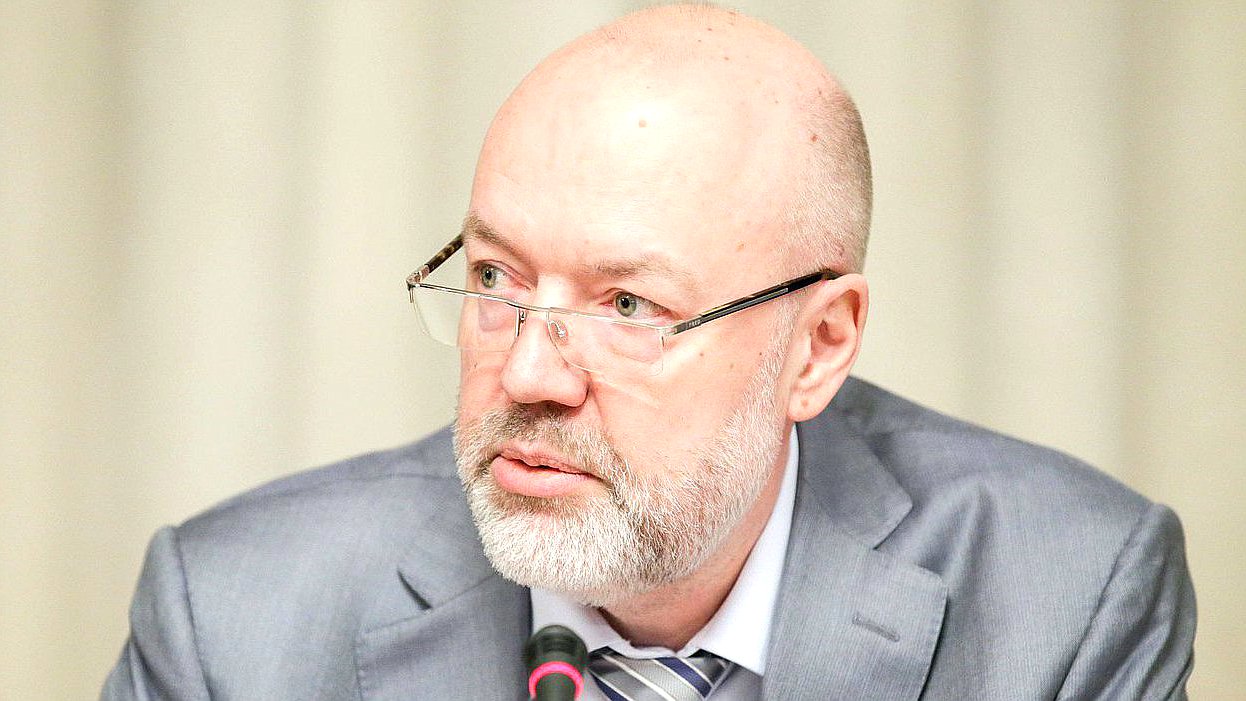
The Finnish delegation was led by the Minister of Justice of Finland Antti Häkkänen and the Ambassador of Finland to the Russian Federation Mikko Hautala.
After welcoming the Finnish delegation, Pavel Krasheninnikov

Pavel Vladimirovich
noted the existing productive bilateral cooperation between Russia and Finland and established strong traditions of active political dialogue.
During the event, members of the delegation got acquainted with the work of the Committee and relevant legislative initiatives, as well as discussed legal issues that require active international cooperation.
Antti Häkkänen informed that in November 2018 Finland will assume the presidency of the Council of Europe, and next year the presidency of the European Union. He stressed that Finland prioritizes the legal sphere under these powers.
Pavel Krasheninnikov noted that the representation of Finland in the Council of Europe is very important for Russia, taking into account the current international situation.
“If states call themselves legal, then their associations should also be legal, without prejudice to anyone’s rights, including the right to vote in the Parliamentary Assembly of the Council of Europe,” said the parliamentarian.
The Minister of Justice of Finland drew attention to the fact that there are a number of legal issues that are common to all countries, for example, providing citizens with legal assistance. Another important issue is the use of new technologies and artificial intelligence in various social processes, in a way that does not jeopardize human rights. In the legal sphere, this is one of the biggest challenges at the moment, said Antti Häkkänen.
In his turn, Pavel Krasheninnikov informed that the issue of the development of “digital objects” and the need to regulate “digital rights” is relevant for Russia, as well as for the whole world. And now the State Duma is considering the relevant bills, which are now being prepared for the second reading.
He said that the issue of the development of digital objects requires regulation at the international level, the adoption of the Convention, as there are no territorial boundaries in the cyberspace.
The Minister of Justice of Finland agreed that, despite the domestic legislation adopted by many countries in this area, it would be advisable to establish common international standards, taking into account the rule of law and respect for human rights. And the Council of Europe is already working on this issue.
He said that currently in Finland, artificial intelligence is being used in courts in order to simplify the search for court decisions taking into account anonymity and the lack of personal data in the public domain. But he noted that the work of judges cannot be replaced by artificial intelligence.
The participants of the meeting paid special attention to the topic of combating terrorism and extremism, including their manifestations on the Internet, and issues of legislative regulation of this sphere. They noted that the Internet also provides new challenges. The difficulty lies in the regulation of the above issues, not violating the freedom of speech. And the relevance of this issue is evident both for Finland and for Russia, and for other countries as well.
Pavel Krasheninnikov reported that there are currently active discussions on this topic in Russia. And recently the Plenum of the Supreme Court of the Russian Federation has adopted a resolution, which explains judicial verification of the validity of initiating criminal cases in respect of materials posted on the Internet. In particular, the resolution notes that to recognize the posted material as extremist it is necessary to establish the existence of intent to incite hatred or hostility. “Freedom of speech ends where a person deliberately incites extremism,” said Pavel Krasheninnikov.
During the meeting, other issues relevant to both countries were also discussed.
The parties agreed that the ongoing processes in the sphere of international law require active cooperation at the international level.
It is necessary to find and develop ways of interaction in the legal sphere.
Representatives of the Finnish delegation thanked Pavel Krasheninnikov for a productive meeting, expressing their readiness for further fruitful cooperation.
